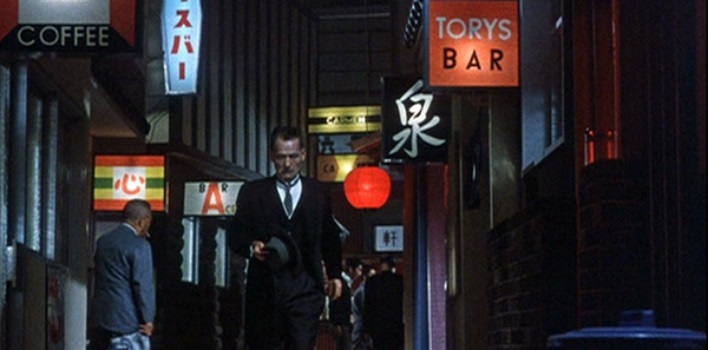
“In the end, we spend our lives alone.”
One cannot help but wonder if the two characters who voice this sentiment during the course of Ozu’s An Autumn Afternoon serve as mouthpieces for the director himself. Partway through the writing of this film’s script, Ozu’s mother died; as a lifelong bachelor he had shared a roof with her for nearly his entire lifetime.
While all of the stylistic and narrative elements marking An Autumn Afternoon as a uniquely Ozu film are present, the overall tone of this work is considerably darker. The humor always found in his family dramas is more caustic, even cruel. The still lifes that bracket his domestic scenes contain the smoke and seediness of city neighborhoods, with little natural or urban beauty to soften the gritty impression.
The storyline of An Autumn Afternoon is a familiar one for viewers of Ozu’s movies. A widowed parent, Hirayama, played once again by archetypal Ozu father figure, Chishu Ryu, feels it is time for his adult daughter to be married off and leave home. Assorted family members and friends, as usual, involve themselves in the machinations enabling the wedding to take place.
Variations on this same theme are portrayed in earlier films such as Late Spring and Late Autumn. However, compared to the tenderness and intimacy found in these works, the social interactions within An Autumn Afternoon are tenser and more distant. Ozu effectively captures this visually, as parents, children, husbands, and wives are frequently isolated within the camera frame, facing away from one another or brooding in separate sections of their homes. Unlike the mournful yet accepting parents saying farewell to their married children in the other two films, Hirayama instead wallows in self-pity and alcohol-fueled nostalgia for his dead wife and his World War II military service.
Tragically, An Autumn Afternoon would be Ozu’s final film, although his creativity showed no signs of waning. The year following this film’s release, on his sixtieth birthday, Ozu died from cancer. With a simplicity that mirrors his finest work, his remains are marked by a stone inscribed only with the character mu, meaning “nothingness.” — Andrew Spitznas (2010)
Arts & Faith Lists:
2005 Top 100 — #95
2010 Top 100 — #71